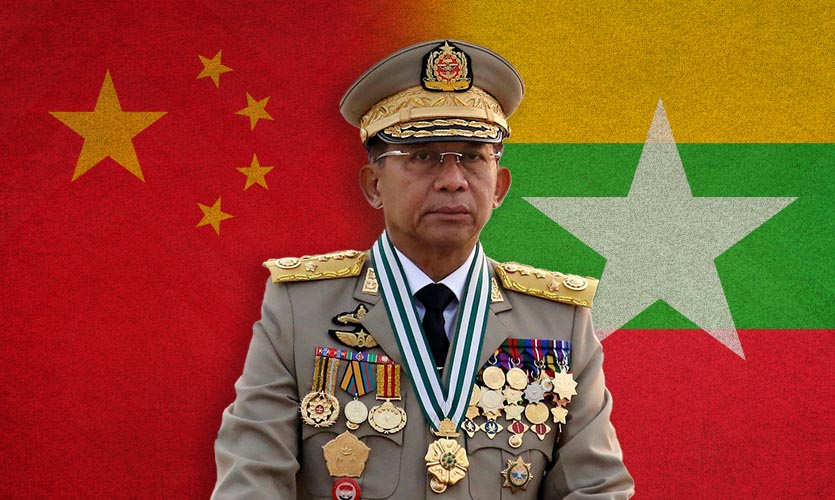According to Myanmar-based Mizzima News, the military regime’s continuing international isolation, inability to reduce domestic armed opposition, and lack of legitimacy worldwide are holding back its relations with China.
It should be noted that the US has increased its engagement with the Myanmar authorities following the February 2021 coup.
A summit of the Lancang-Mekong Cooperation (LMC) was supposed to be held in Myanmar towards the end of 2022, but was cancelled because China’s Premier Li Keqiang did not respond to the Tatmadaw’s invitation. As a result, nominal head Min Aung Hlaing (MAH) had no chance of meeting a senior Chinese official personally. MAH still hasn’t met a senior Chinese leader or official since the coup on February 1, 2021, according to Mizzima News.
In April 2021, ASEAN approved a five-point peace plan that was to be implemented by Myanmar but the junta did not follow through. This could be one of the reasons behind Beijing’s lack of response. The denial of the invitation seems to indicate that China does not place its relationship with the Myanmar military regime above its relationship with the ASEAN region as a whole.
It appears that Beijing may not only be concerned about Myanmar from a diplomatic standpoint but also because the growing conflict in the country is hampering investment, with Chinese projects facing increasing risks as anti-coup conflicts escalate across the country. It has been recorded that a total of 7,800 clashes have taken place across Myanmar since the coup in 2021, and several attacks have been conducted on Chinese properties and investments.
A total of 300 of these incidents have occurred near significant Chinese construction sites, with 100 of them occurring in 19 townships where pipeline projects for natural gas and oil are being built. The pro-democracy resistance groups in Myanmar, known as the People’s Defence Forces (PDFs), are also influencing China’s interest.
PDFs and Ethnic Armed Organisations (EAOs) have attacked police officials and soldiers in over 250 of Myanmar’s 330 townships. These incidents increase the possibility that the Myanmar regime is progressively losing favour with Beijing.
According to recent media reports, the people of Myanmar have doubts about China’s capacity to hasten the peace process in their nation because Beijing has repeatedly chosen to remain silent about the military coup and the oppression of citizens, particularly that of democracy activists and protesters, against the excesses of the military administration.
There is considerable hostility towards China and its actions in Myanmar, particularly at a time when the military regime is growing increasingly autocratic and oppressive by utilising state authority against its own people.
Read more: Widespread Power Outages Engulf Pakistan Amid Economic Crisis










